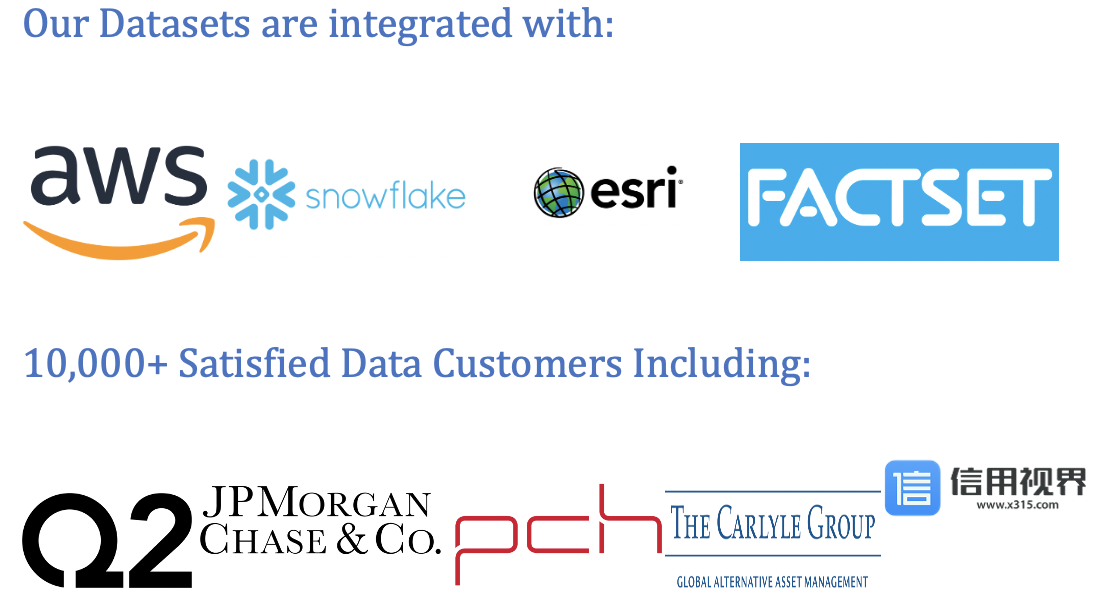
Top Visit Data Providers
Understanding Visit Data
Visit Data is collected through multiple channels, including physical sensors, web analytics tools, mobile applications, and customer relationship management (CRM) systems. It includes quantitative data such as visit frequency, duration, and geographic location, as well as qualitative data such as user demographics, interests, and purchasing behavior. Analyzing Visit Data helps businesses understand customer journeys, optimize marketing strategies, and improve the overall customer experience.
Components of Visit Data
Key components of Visit Data include:
- Physical Visits: Data on visits to physical locations such as retail stores, restaurants, tourist attractions, and event venues, including foot traffic patterns, peak visit times, and dwell times.
- Website Visits: Metrics related to visits to websites or digital platforms, including page views, session duration, bounce rates, and conversion rates, providing insights into user engagement and website performance.
- Mobile App Interactions: Data on interactions with mobile applications, including app downloads, active users, session length, and in-app purchases, facilitating app performance optimization and user retention efforts.
- Online Interactions: Information about interactions with online platforms such as social media, forums, and online communities, including likes, shares, comments, and engagement rates, guiding social media marketing strategies and content creation efforts.
Top Visit Data Providers
- Leadniaga : Leadniaga offers a comprehensive visit analytics platform equipped with advanced tools for collecting, analyzing, and visualizing Visit Data across physical and digital channels. Their platform provides insights into customer behavior, visit trends, and engagement metrics, enabling businesses to optimize marketing campaigns and improve customer experiences.
- Google Analytics: Google Analytics is a leading web analytics platform that tracks and analyzes website visits, user interactions, and conversion metrics. It offers a wide range of features for understanding website traffic, audience demographics, and user behavior, helping businesses measure the effectiveness of their online marketing efforts.
- Facebook Insights: Facebook Insights provides analytics and performance metrics for Facebook pages, including data on page views, post reach, engagement, and audience demographics. It helps businesses understand their Facebook audience, track campaign performance, and optimize content strategies for maximum impact.
- Apple App Store Analytics: Apple App Store Analytics offers insights into app performance metrics such as app downloads, user retention, and in-app purchases for apps published on the Apple App Store. It helps app developers track user engagement, identify growth opportunities, and optimize app marketing strategies.
Importance of Visit Data
Visit Data is essential for businesses and organizations for the following reasons:
- Customer Understanding: Provides insights into customer behavior, preferences, and interactions across different touchpoints, enabling businesses to understand customer journeys and tailor experiences to meet customer needs.
- Performance Measurement: Helps businesses measure the effectiveness of marketing campaigns, website content, and digital platforms by tracking key performance indicators such as visit volume, engagement metrics, and conversion rates.
- Business Optimization: Guides business decision-making and resource allocation based on data-driven insights, enabling businesses to optimize operations, improve customer service, and drive revenue growth.
- Competitive Analysis: Enables businesses to benchmark performance against competitors, identify industry trends, and uncover opportunities for differentiation and innovation.
Applications of Visit Data
The applications of Visit Data include:
- Marketing Optimization: Helps businesses optimize marketing strategies, target audiences more effectively, and allocate marketing budgets based on insights into visit patterns, user behavior, and campaign performance.
- Customer Experience Improvement: Facilitates efforts to enhance the customer experience by identifying pain points, optimizing website navigation, and personalizing interactions based on user preferences and behavior.
- Location-Based Marketing: Supports location-based marketing initiatives by leveraging insights into visit trends, geographic distribution, and user demographics to deliver targeted promotions and offers to customers based on their proximity to physical locations.
- Operational Efficiency: Enables businesses to improve operational efficiency by optimizing store layouts, staffing levels, and inventory management based on insights into foot traffic patterns, visit frequency, and peak visit times.
Conclusion
In conclusion, Visit Data plays a critical role in understanding customer behavior, optimizing marketing strategies, and improving the overall customer experience across physical and digital channels. With top providers like Leadniaga, Google Analytics, Facebook Insights, and Apple App Store Analytics offering advanced tools and analytics capabilities for collecting, analyzing, and leveraging Visit Data, businesses can gain valuable insights into visit patterns, user behavior, and engagement metrics. By harnessing the power of Visit Data effectively, businesses can enhance customer engagement, drive revenue growth, and stay ahead of the competition in today's competitive marketplace.
Our Datasets are integrated with :



10,000+ Satisfied Data Customers including :








